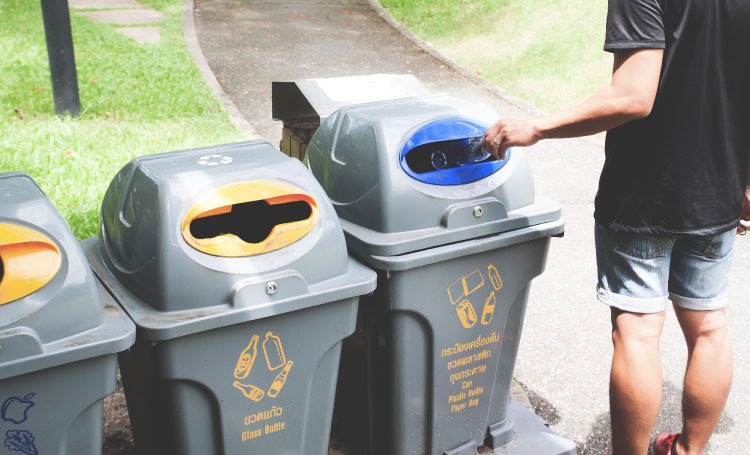If you run a business, you must be aware of the various regulations and requirements concerning business waste disposal. Business waste is defined as any waste generated during commercial activity. This waste can be anything from household trash to mobile traders’ waste. Some wastes have special regulations, such as hazardous waste. It is essential for businesses in the UK to register as authorised waste carriers. This process is free and carries significant consequences if your company does not meet the regulations.
Segregation
Table of Contents
If you’re planning to outsource your business waste management, you need to segregate your waste before it leaves your premises. There are a number of ways to achieve this. By contacting a waste management provider, you’ll be able to set up the correct system and meet the legal requirements for business waste disposal. These companies can provide you with a tailored service tailored to your needs.
Business waste, or waste generated from commercial activity, must be separated and recycled. This is a requirement under the Environment Bill and Resources and Waste Strategy. Segregation of waste is essential to ensuring that materials are recycled efficiently. You can find a waste collection service in the UK that provides this service, or you can choose to handle your own waste.
Costs
When it comes to the costs of business waste collection, there are a number of different factors that need to be considered. First of all, every business produces a different type of waste. An office building, for example, produces a lot of paper, while a restaurant or hotel will generate more food waste. These waste types require different processes to remove and dispose of, and they can affect the cost of the service.
Another factor in determining the costs for business waste collection is the frequency of collection. A more frequent collection is more expensive, as it involves more trips and additional labor. Larger businesses, or those located in a congested area, may need more frequent collections.
Duty of Care
If you’re planning to employ a commercial waste collection service, you must ensure that your service provider has a Duty of Care policy. This document is a legal requirement for every load of waste that you send to a waste carrier. It also ensures that you have a full record of the waste created by your business. The duty of care certificate applies to all businesses in England and Wales that collect, transport, or recycle business waste.
The duty of care legislation places strict rules on how waste should be handled, disposed, and transported. Businesses must ensure that waste is stored in secure containers and transported to a licensed commercial waste site. There are several ways to collect business waste, including a licensed waste collection company or a private individual. However, it is important to make sure that anyone you let touch your waste is authorised to do so.
Regulations
Regulations for business waste collection are an important part of being a responsible business. Every business will produce trade waste, and it is important to understand how to manage it safely. In the UK, there are rules and regulations that govern the safe disposal of waste. Clearway can provide you with professional guidance and help you comply with these laws.
Regulations for business waste collection will depend on what type of material you generate and how much you generate. Businesses will need to check with their city or county to ensure they are following the law.
Bin insurance
Some waste management companies offer bin insurance for businesses. However, the value of such insurance has been questioned by many in the industry. Therefore, it is important for businesses to ask for insurance documentation before selecting a bin collection service. Bin insurance is also important for businesses that generate hazardous waste or bulkier waste, such as builders’ waste. In such instances, a standard waste carrier licence certificate will not suffice.
In addition to liability coverage, you should also consider errors and omissions insurance. This covers your business from accusations of loss or damage and pays for expenses related to defending your company. Also, commercial auto insurance is mandatory in most states for business-owned vehicles. It covers medical expenses as well as property damage if the driver is involved in an accident with another vehicle. In this case, personal auto insurance will not cover the expenses associated with the accident.
Costs of hiring a business waste collection service
Hiring a business waste collection service can be a great way to streamline your waste management efforts. Not only will you save time and money, but you’ll also be able to eliminate some of the hassle of tackling this task on your own. However, before you hire a business waste collection service, you should know what to expect.
Business waste collection companies typically charge different rates for different services. The first step is to look at your current contract with the company to determine what you’ll be charged every month. The next step is to compare different companies to determine which ones offer better prices. If you find a lower rate on a given company, you can negotiate the cost with them.

